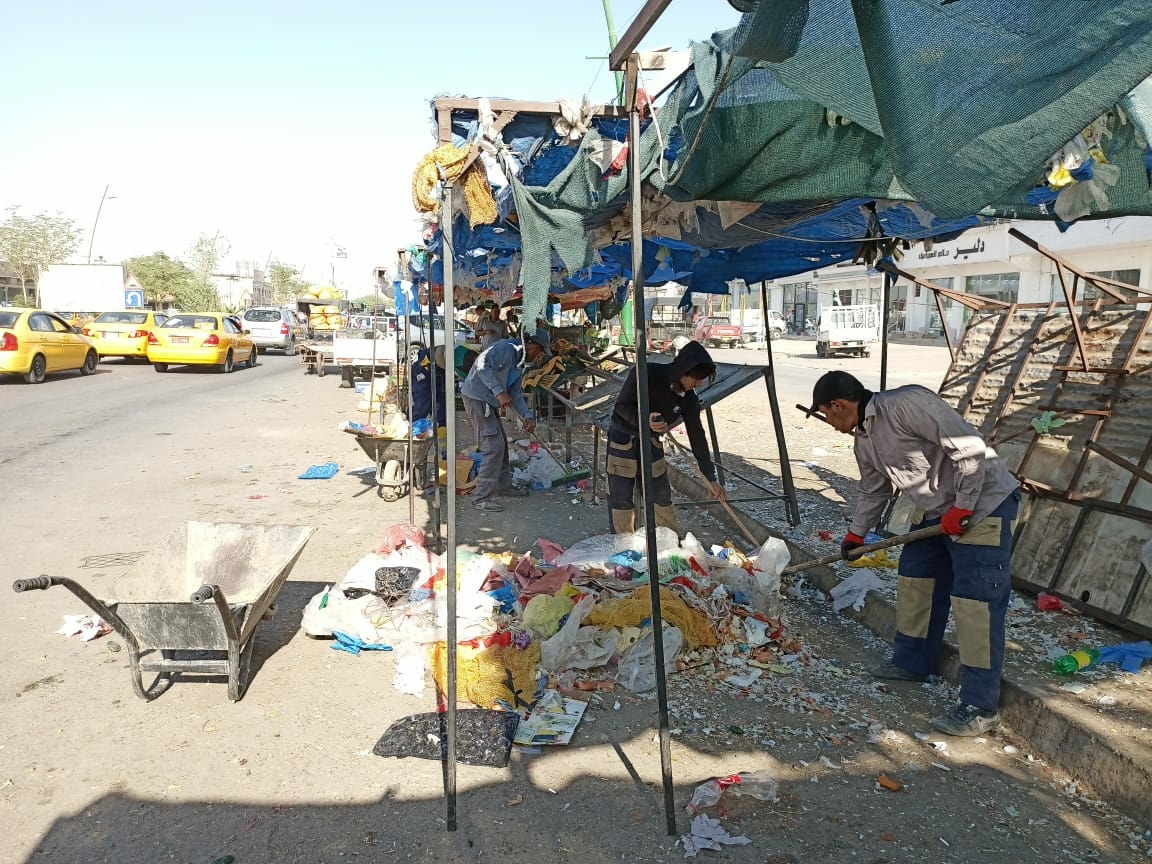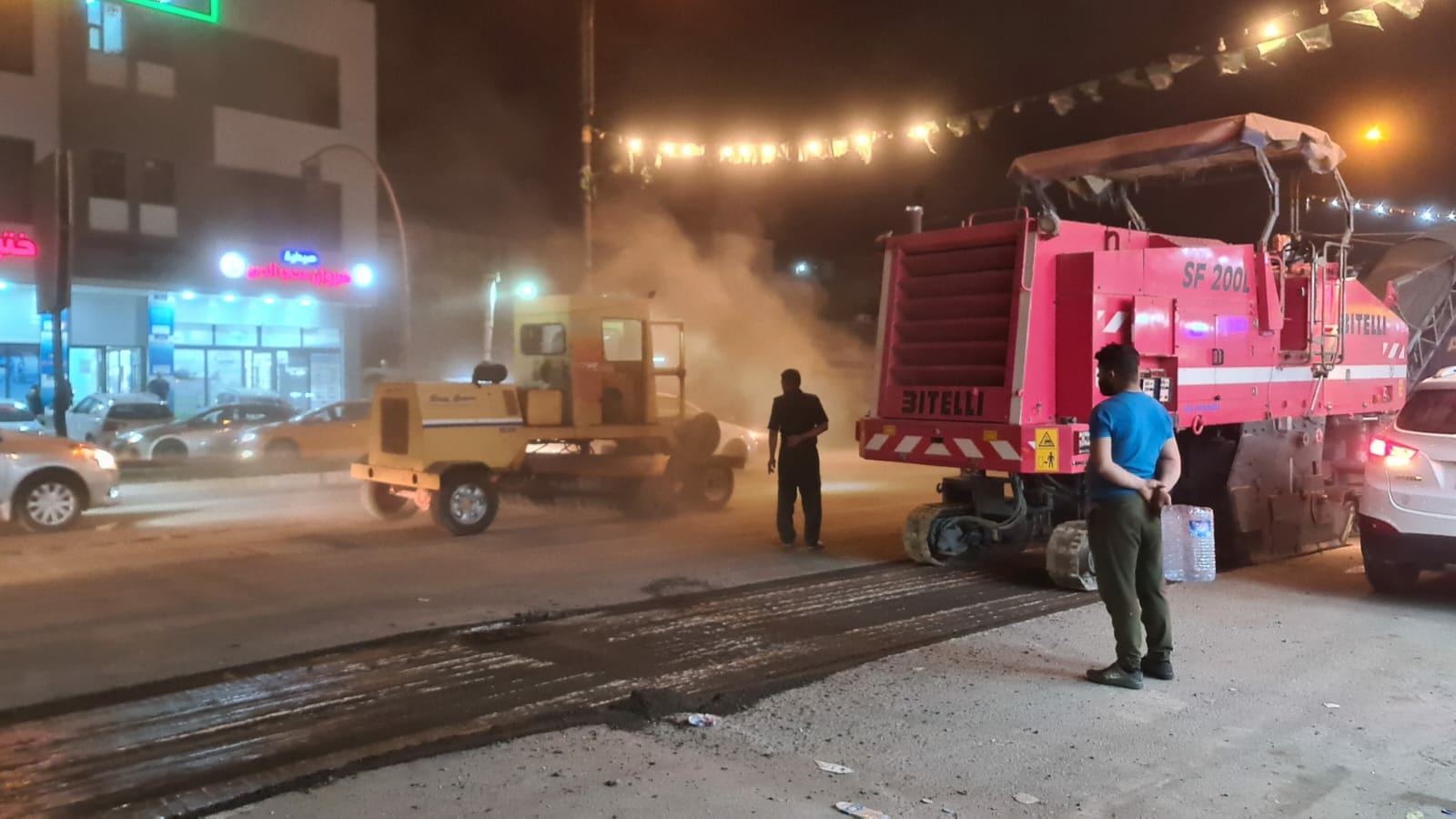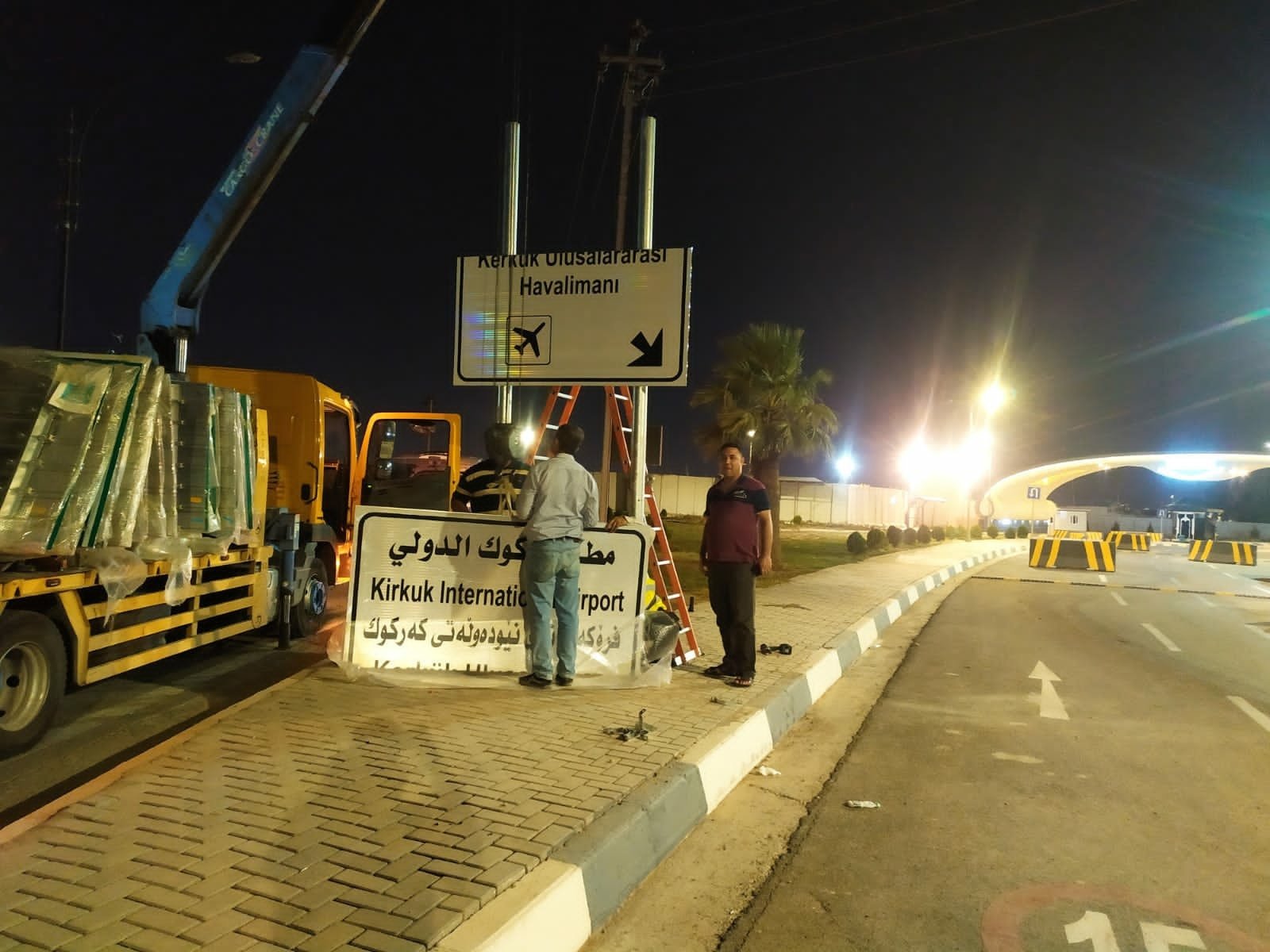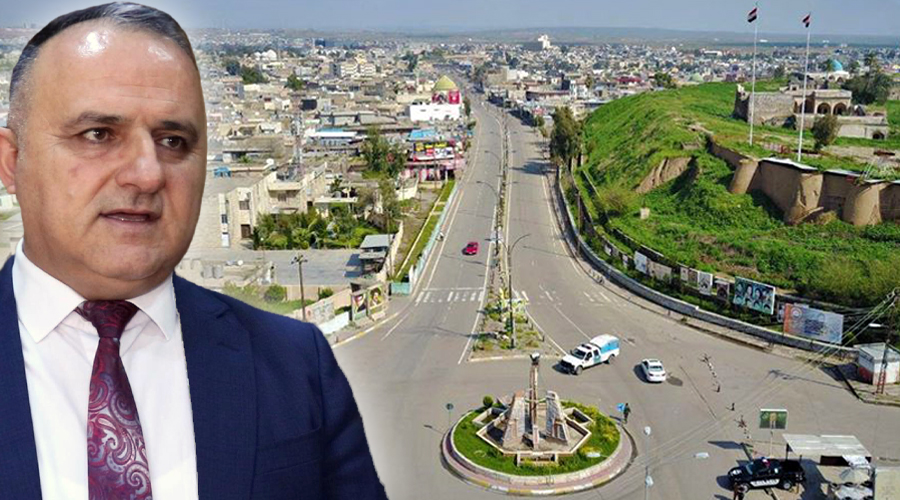The director of the Kirkuk municipality, admits to negligence in the collection of garbage in the city and revealed that they knocked all the doors to solve the problem, but to no avail.
In this interview, Engineer Faraidun Adel Zangana discusses the municipal projects for the neighborhoods of Kirkuk, including the illegally-built neighborhoods and the greening plan of the city.
Accumulation of litter
Adel says the Kirkuk has been divided into two parts for garbage collection: the small section of the western bank of Khasa and the municipal administration to Rahimawa and the new provincial building has been given to a private company by the provincial administration itself.
The company works with the assistance of a government committee of which the municipality is a member.
The other large part includes Shorjah, Panja Ali, Iskan, Imam and Qasim and several other neighborhoods (on the eastern outskirts of the city).
“Only 200 million (Iraqi) dinars (IQD, USD135,000) has been allocated for it per month, with a certain number of employees and municipal cleaning equipment.”

The mayor admitted that there is negligence, but "it is a large city and the number of citizens has increased. Previously, 1.2 billion dinars were allocated for cleaning and now only 200 million dinars are allocated. We have been shouting for three years about the lack of budget and Baghdad is not helping us."
He cites the example of Hilla city, center of Babylon province, which is not half as large as Kirkuk, but has 120 garbage trucks, while Kirkuk has only 30 trucks, 25 of which are working.
“Out of 1,200 tons of garbage daily, the municipality has the capacity to collect less than 400 tons.”
Garbage collection alike other public services is poor in Kirkuk. It used to be a free of service but currently the government charges each house $2 a month. People protest irregular garbage collection despite imposing fees.
The oil rich city of Kirkuk, Iraq's second largest oil reserves, is ethnically a mixed province of 1.7 million Arabs, Kurds, and Turkmens. It has long been at the center of disputes between Baghdad and the autonomous Kurdistan Regional Government KRG.
Greening the city
The director of the Kirkuk municipality says they spend one third of the municipality's budget on greening the city.
"The greening covers the medians and the outskirts of the city and the greening belt of the city, which is a new step yet and it will take time for the trees to grow.”
"Of the 32 billion dinars allocated for the municipality in 2021, we have about 10 billion dinars for greening the city and this year out of our total request for the municipality, which is 120 billion dinars, if we get 50 billion dinars, then 15 billion will be dedicated for greening the city and the services of the parks.”
According to statistics from Kirkuk offices, the greenness rate in the city does not exceed % although in 2017 the rate was close to 4%, while the international standard for green area is above 15%.
Video: Faraidoon Adel, Director of Kirkuk Municipality, talks about their plans and problems to KirkukNow
Adel slams at state companies which have big revenues yet reject to undertake part of public services in Kirkuk.
"In the whole world, if a factory or a company damages the environment, it must allocate part of its revenues to green and clean its vicinities, but in Kirkuk, unfortunately, the (State-run) Northern Oil Company does not help and does not spend a single dinar.”
"We had a plan to build a garden and it needed their approval (it was their land), but they refused to allow it," he added.
"They force you to wish that the company would have not been in Kirkuk. They have occupied one side of Kirkuk and they have borders with residential neighborhoods and often create problems for service projects.”
There are five main crude oil producing fields in Kirkuk province; Avana, Bay Hassan, Baba Dome, Jambur and Khabaza, under the control of the Iraqi government's Northern Oil Company, under ministry of oil.
Last August, 1.1 million barrels of crude oil were exported from Kirkuk oil fields to Ceyhan port in Turkey, earning more than $100 million.
Projects for illegally-built neighborhoods
The director of the municipality says they have many projects under the emergency security support law, the amount of five billion dinars has been allocated for it, mostly for 10 residential neighborhoods.
Among the projects, there are roads, asphalt, concrete, sewerage, installation of electricity transmission lines and poles, as Faraidoon Adel said, and if any extra budget, it will be spent for other places and projects.

Since the fall of Saddam Hussein's Baath regime in 2003, thousands of houses have been built on state-owned land in Iraqi provinces, including Kirkuk, which constantly have problems with basic services.
The director of the municipality said that there are several other projects that are trying to be completed soon, such as the two-sided streets of Barutkhana and Panja Ali neighborhoods, and the Kirkuk-Erbil highway.
“Since 2019, the two-sided street of Barutkhana was a big headache, which was previously awarded to a government company. The matter has been resolved and will be given to another contractor to be completed as soon as possible.”
He also said that the two sides street of Panja Ali was late due to an oil pipeline which required the approval of the Northern Oil Company which has been obtained, in addition to demands of the people for street lighting, cutting and paving such as Shorjah Street.

Address signs in four languages
Engineer Adel says that all address signs in the province will be in four languages, including Kurdish.
"We have repaired and hung the signs that provoked unconsent, as part of another project that has a better design, modern and specially produced abroad," he added.
In January 2022, a number of address signs were installed on a street in Kirkuk, but only in Arabic and English, skipping Kurdish and other local languages of the province, which caused protests among social networks and media. Later, they were removed and replaced in four languages in August.





